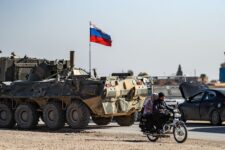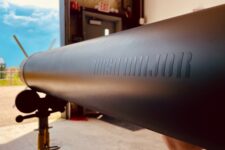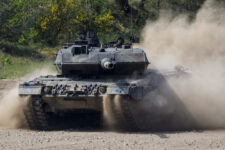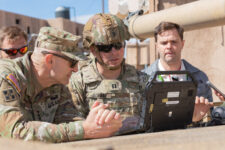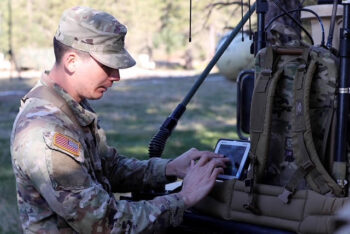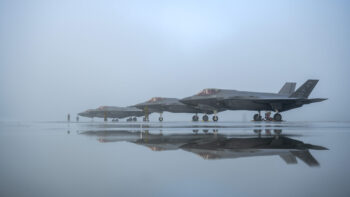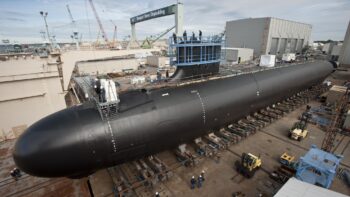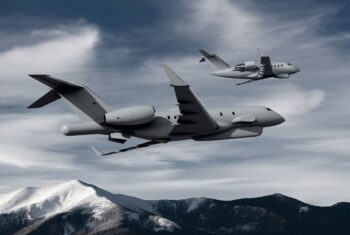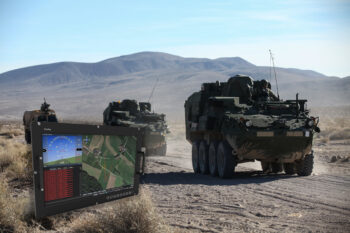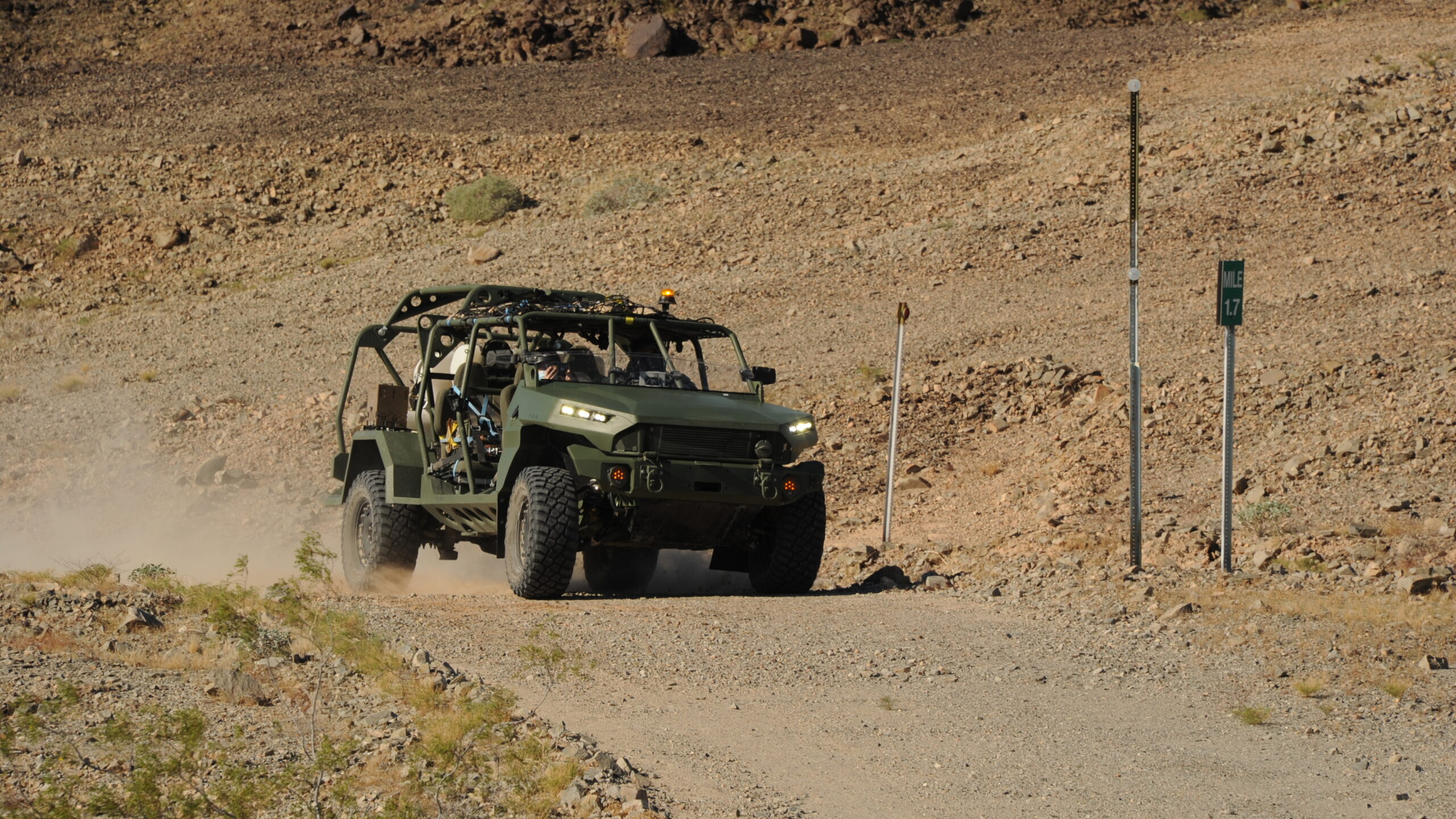
The Infantry Squad Vehicle under test at U.S. Army Yuma Proving Ground in February 2021. (Photo by Mark Schauer via DVIDS)
WASHINGTON — The Army is currently evaluating the results of crucial re-testing of GM Defense’s Infantry Squad Vehicle (ISV) to decide if vehicle “deficiencies” have been corrected, a service official told Breaking Defense, ahead of a decision in March or April to launch into full-rate production.
Over the past couple of years, the Army’s new air-droppable troop carrier has been criticized for a wide range of issues, including by the Director, Operational Test & Evaluation (DOT&E) office in last year’s blistering report that said it is “not operationally effective” for combat missions. While service officials have asserted that the ISV is designed to ferry soldiers around on the battlefield and not to help them fight in direct combat, they have also acknowledged that the vehicle needs certain fixes before they commit to a larger buy.
“The Army took deliberate action to shift the [full-rate production] FRP decision [from May 2022] to March/April 2023 to allow time to validate corrective actions implemented by the vehicle manufacturer to address deficiencies identified during developmental and operational testing,” John Hufstedler, the product director for ground mobility vehicles with the Program Executive Office Combat Support & Combat Service Support, wrote in a Jan 27 email to Breaking Defense.
Hufstedler did not provide details about which deficiencies the company has fixed or is still fixing. However, the fiscal 2021 DOT&E report said that when the vehicle was tested in Yuma Proving Ground, Ariz., desert conditions in 2021, it found problems with broken seat frames, engine cracks and overheating, and the service subsequently said it would address some of these problems.
“All issues identified at Yuma have been addressed in coordination with our US Army customer in 2022, and a new vehicle was provided to re-run the [reliability availability and maintainability] RAM testing that started in June 2022 and recently concluded,” a GM Defense spokesperson wrote in a Jan 30 email. “There were no mission failures or system aborts from the last round of testing.”
This upgraded ISV was slated to drive 5,000 miles over varying terrain and speeds “consistent with the mission profile” during the 2022-2023 retest, according to the more recent FY22 DOT&E report. While Hufstedler did not provide Breaking Defense with details about that test, he confirmed that it wrapped up this January and said the Army is evaluating the results to “reassess requirement compliance.”
In addition to that reliability test redo, last year the Army conducted simulated airdrop impact tests with the modified ISV and determined that the corrective changes will not impact the service’s ability to airdrop the vehicle, according to Hufstedler. However, he noted that the service decided to postpone unit airdrop operations from September 2022 to November 2023 due to vehicle availability.
“The Army’s decision was to align this event with the corrective actions implemented by the vehicle manufacturer and to leverage scheduled unit training in lieu of scheduling a separate test-only event,” Hufstedler explained.
GM Defense won the $214 million ISV contract in 2020 with its bid based around the Chevrolet Colorado ZR2 midsize truck that can be transported via a CH-47 Chinook helicopter and airdropped by the C-17 Globemaster and C-130 Hercules aircraft.
The company delivered its first vehicle to the Army 120 days after the contract award and, as of late January, the service had accepted 252 ISVs, of which 118 have been fielded, according to Hufstedler. So far, he said that the vehicle continues to be a “well received” capability to motorize Infantry Brigade Combat Teams.
As the Army prepares to make an ISV full-rate production decision, Bradley Watters, GM Defense’s vice president of international business development, told Breaking Defense last month it will be a “big inflection point” for the program and impact possible foreign military sales. Although he declined to discuss potential international deals, Watters noted that the company plans to host a European demo soon but said specific details are being kept “under wraps” for now.
Tim Martin contributed to this report from London.
Top defense insights from 2024
A curated look at standout opinions and analysis covering topics like uncrewed systems, NATO partnerships, US-Saudi defense dynamics, and evolving warfare strategies, spotlighting key issues shaping the global defense landscape.

